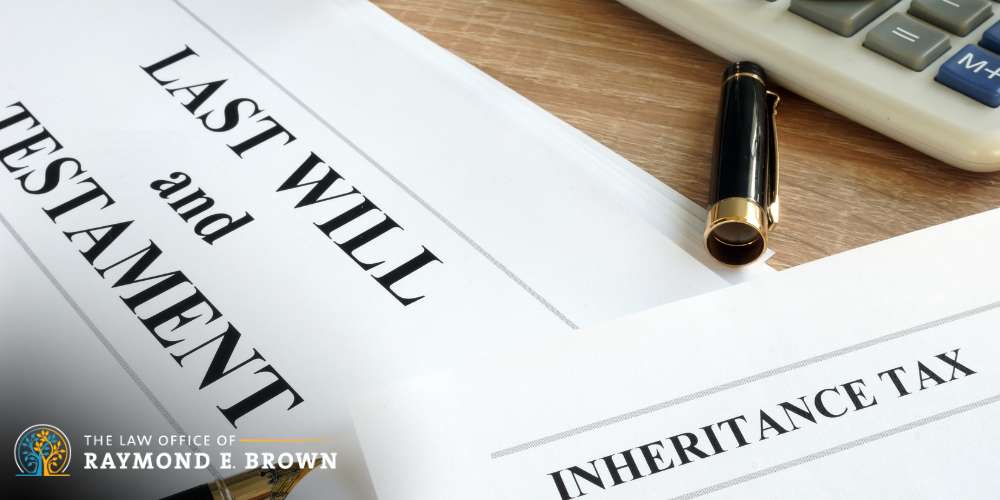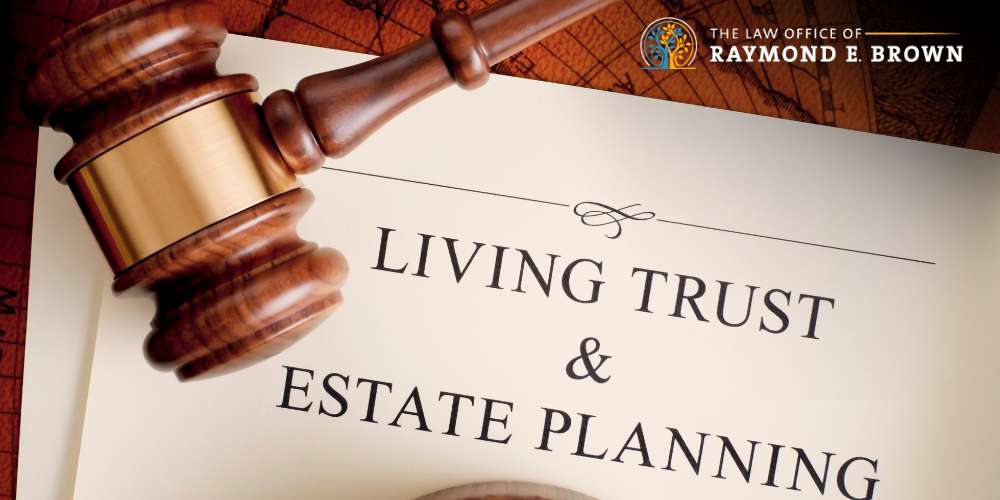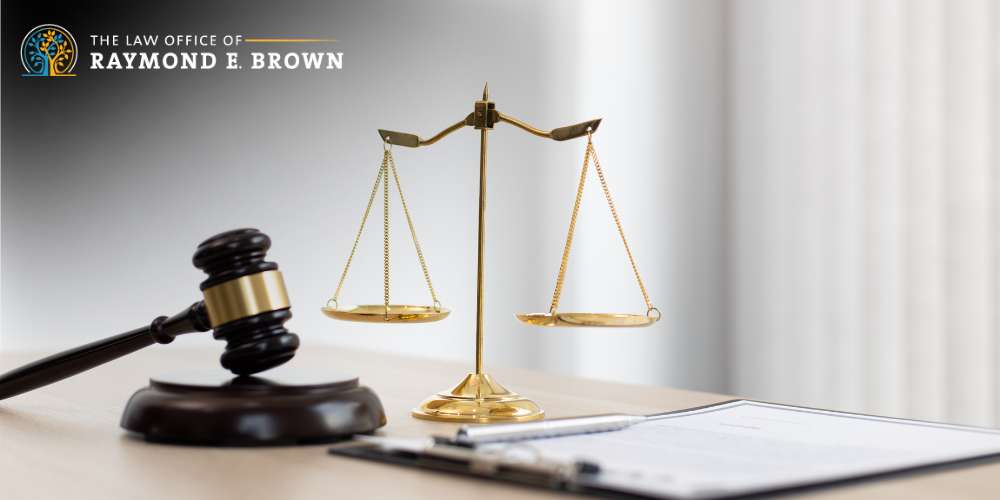Estate planning can seem daunting and even sometimes unnecessary to some people, especially if they believe their house is their only asset. The truth is, it’s pretty unlikely that your home is the only asset to your name, but even if it is, is a will enough to cover your needs?
At The Law Office of Raymond E. Brown, our Maryland estate planning attorneys aim to provide clear, straightforward advice to ensure your estate planning aligns with your circumstances and wishes. In this blog, we’ll discuss whether having a will alone is sufficient enough to protect your assets and meet your estate planning goals in Maryland.
What is the Purpose of a Will?
A will, also known as a last will and testament, is an important legal document that explains how you would like your property and other assets to be distributed after your death. This legally binding document ensures that your wishes are honored and provides instructions for the executor, who is the individual appointed to manage and distribute your estate’s assets.
A will is crucial in guiding the probate court through the probate process, which involves validating the will and overseeing the distribution of assets. This may involve settling any outstanding debts using funds from your estate, distributing your assets to your beneficiaries, and more.
Why Is Having a Will Important?
Having a will in place before you pass is essential for several reasons. Without a valid will, state laws will dictate how your estate is distributed, which may not align with your wishes. A will allows you to clearly specify how you intend to distribute assets, ensuring that your property goes to your chosen family members and beneficiaries and is not left up to Maryland’s intestacy laws.
Although wills still require probate, they can help streamline the probate process by providing clear instructions for the court and executor. Additionally, if you have minor children, a will allows you to designate a chosen guardian for them, ensuring their continued care and well-being in the event of your untimely passing.
Is It Necessary to Have a Will?
It is not legally required under state law to have a will or any type of estate plan, but it can be incredibly important and beneficial for those with any personal property or assets owned in their name (even if it’s just a house). Not only does it help with transferring property and assets according to your wishes, but it can also help prevent disputes among family members as well as help make the probate process as painless as possible for them.
When a person dies without a will (called dying “intestate”), their property and assets will be distributed according to Maryland’s intestate succession laws. This typically begins with the surviving spouse, if any, and then makes it way down the chain to children, extended family, and other relatives. If you do not like the idea of your state’s laws dictating where your property will go, you’ll need to ensure you have a valid will in place ASAP.
Who Needs a Will and Why?
Everyone, regardless of their age or the size of their estate, should create a will. Whether they are a boomer or a millennial, are extremely wealthy or just getting by, having a will ensures that a person’s assets are distributed the way they see fit. For those with minor or dependent children, a will becomes even more important for designating guardianship.
Regardless of your age, income, or the size of your estate, a will can streamline the distribution process and provide peace of mind for both you and your loved ones knowing that everything is handled properly and according to your wishes.
Is a Simple Will Good Enough?
Whether or not a simple will is good enough depends on your intentions. For example, if you would like to help your family avoid probate entirely, a will would not suffice. However, if your only concern is that your assets are given to the appropriate beneficiaries and/or your young children are taken care of by someone you trust after your passing, then a simple will may be all that is needed.
A will can be as long and detailed or as short and sweet as you would like it to be. As long as all major assets are accounted for, such as property, valuables, and children, and the will meets all Maryland requirements (contains testator’s signature, testator was of sound mind, observed and signed by two witnesses, etc.), then it should hold up in court.
Limitations of a Will
Now that you know the gist of what a will can do for you, let’s explore what a will can’t do for you. Here are some of the main limitations that come with having a will alone:
- Probate Process: A will must still go through a probate proceeding, which can be time-consuming and costly. Plus, it’s a public process, so the details of your probate estate become public record.
- Non-Probate Assets: A will does not cover assets that pass outside of probate, such as jointly owned property, retirement accounts, life insurance policies, and assets held in trusts or other financial accounts. Instead, these assets are directly transferred to the designated beneficiaries when the trust/account owner dies.
- No Immediate Effect: A will only takes effect after death and does not provide any assistance for managing affairs in case of incapacity. For such situations, other documents like a durable power of attorney or advance directive are necessary.
- State and Federal Estate Taxes: A will does not inherently shield your estate from state or federal estate tax. The value of your estate, as calculated at the time of your death, determines the tax liability. Estates exceeding the federal exemption amount are subject to federal estate taxes. Many states also have their own estate or inheritance taxes with varying exemption limits.
- Limited Control Over Certain Assets: Some assets, like those held in joint tenancy or those with designated beneficiaries, such as bank accounts, cannot be controlled by the terms of a will.
- Potential for Disputes: Although a will provides clear instructions for asset distribution and can help minimize the chance of a dispute, it typically cannot prevent it entirely. If the will is contested by dissatisfied heirs, it could end up leading to potential legal battles.
Understanding these limitations is crucial for comprehensive estate planning, often requiring additional documents and strategies to ensure all aspects of one’s estate and wishes are fully covered and accounted for.
Scenarios Where a Will Alone May Be Sufficient
When a house is the only significant asset within an estate, or when the estate is relatively straightforward with clear beneficiary designations, a will is often sufficient to manage the distribution of assets. In such cases, there tend to be minimal concerns regarding the costs and time associated with probate. A simple estate, particularly one where beneficiaries are clearly identified and there are no complicated assets or liabilities, makes the probate process more streamlined and less burdensome.
Additionally, if you have limited beneficiaries, are confident there will be no disputes, and are not concerned about your future incapacity and don’t wish to plan for someone to manage your affairs if you become unable, a will alone may be enough.
Scenarios Where Additional Planning May Be Beneficial
In a large number of cases we see here at The Law Office of Raymond E. Brown, estates are rarely that simple and straightforward. In these cases, a will alone likely won’t be enough. Here are some common scenarios where you can benefit from utilizing other estate planning documents in addition to a will:
- Complex Estates: If you have a large or complex estate, including multiple properties, businesses, or significant investments, additional documents like trusts may be necessary.
- Special Needs: If you have a family member with special needs, a special needs trust can ensure they are cared for without jeopardizing their eligibility for government benefits.
- Avoid Probate: If you want to avoid the time and expense of probate, setting up a living trust can be beneficial.
- Incapacity Planning: Documents like durable powers of attorney and advance healthcare directives are essential for managing your affairs and making medical decisions if you become incapacitated.
- Estate Tax Planning: If you are concerned about state or federal estate or inheritance tax affecting your beneficiaries, additional strategies such as irrevocable trusts, gifting plans, and charitable donations are necessary.
- Blended Families: If you have a blended family, such as children from previous relationships, additional planning can be extremely important.
- Business Ownership: For business owners, having business succession planning documents in place is necessary to ensure a smooth transition and continuity of operations.
- Asset Protection: If you are concerned about protecting your assets from creditors or lawsuits, additional estate planning tools may be required.
- Charitable Planning: If you have charitable intentions, setting up a charitable lead or charitable remainder trust in addition to other planned giving strategies can be more effective than a simple will.
Consider Establishing a Living Trust
When a will alone is not enough, establishing a trust agreement can offer several significant advantages. For example, a revocable living trust allows you to transfer ownership of all the assets into the trust during your lifetime while still retaining control over them. Revocable trusts can also help bypass probate as they transfer assets directly to your beneficiaries after your death, all while maintaining your privacy. Unlike a will, which must go through the public probate process, living trusts keep your affairs confidential and can reduce the administrative burden on your loved ones.
For more complex estate planning needs, an irrevocable trust might be appropriate. These types of trusts can provide additional benefits, such as protecting assets from creditors and reducing estate taxes. By transferring assets into an irrevocable trust, you effectively remove them from your taxable estate, which can be incredibly beneficial for minimizing federal and state estate taxes.
This is only a drop in the ocean that is the world of trusts. To learn more about the benefits of trusts and which agreement may be best suited for you, be sure to consult with an experienced estates attorney at our Annapolis estate planning law firm today.
Other Essential Estate Planning Documents
When planning your estate, you must make sure that every detail is carefully and properly arranged, documented, and legally sound to prevent any complications in the future. However, no matter how sound your last will and testament is, under certain circumstances, it simply won’t be enough to protect every aspect of your estate.
Here are some other essential estate planning documents that offer additional benefits and avenues for protection that a will cannot.
Power of Attorney
A power of attorney (POA) is a legal arrangement that authorizes one person (referred to as the agent or attorney-in-fact) to make financial, legal, and/or healthcare decisions on behalf of another person (the principal) under specific conditions. In Maryland, as in most states, a power of attorney is an essential tool for individuals who want to ensure that their financial and legal affairs, such as investment accounts, are handled according to their wishes if they become incapacitated or unable to make decisions themselves.
The agent’s authority to protect assets becomes active when they complete prior conditions set or “triggers” that are outlined in the power of attorney (POA) document. These conditions might include scenarios such as the principal’s incapacitation or a predetermined date.
There are a few different types of powers of attorney in Maryland, including general POA, Durable POA, Springing POA, and Limited POA, each with their own stipulations regarding the extent of legal authority that the agent has and when they are able to exercise that authority.
Healthcare Directive
A healthcare directive, also referred to as an advance directive or advance healthcare directive, is a legal instrument that allows individuals to express their healthcare desires and dictate medical interventions in situations where they are unable to convey their own preferences due to incapacitation. In Maryland, this directive combines two essential elements: the living will and the designation of a healthcare agent, commonly referred to as a healthcare proxy.
The purpose of an advance directive is similar to that of a power of attorney, which is to allow an individual to communicate their intentions in the event that they are one day unable to do so. A simple will cannot do such a thing, as it does not account for incapacity and only becomes valid upon the grantor’s death.
Speak With an Experienced Maryland Estate Attorney To Find the Right Estate Plan For You
At The Law Office of Raymond E. Brown, our Annapolis estate attorneys are committed to addressing any questions or concerns you may have regarding your estate plan. We understand the challenges involved in ensuring that your assets are all accounted for and your beneficiaries provided for after your passing and can offer strategies and advice to make the legal process as smooth as possible for you and your loved ones.
If you’re ready to get started on planning for your future, our knowledgeable staff will be happy to provide the information and support you need to make informed decisions about your estate and the entire process. Whether you have specific questions or require comprehensive estate planning tools and services, we are here to help you every step of the way.
Give us a call at (443) 554-9944 or reach out online today to get in touch.





